COLUMN: LAUNDRY & CLEANING - INDUSTRY PERSPECTIVE
Ethanol: the unseen guardian of public health
KEYWORDS —
ETHANOL;
DISINFECTANTS;
DISINFECTION;;
HYGIENE;
PUBLIC HEALTH;
CLASSIFICATION.
Abstract
This article aims to highlight the indispensable role of ethanol in safeguarding public health and to examine the potential impact of the proposed regulatory reclassification as a carcinogenic and reproductive toxicant (“CMR”). Ethanol is a biocidal agent widely used for its disinfecting properties across healthcare, food safety and consumer products, playing a vital role in infection prevention and public health resilience. The European Commission and European Chemical Agency (ECHA) are considering reclassifying ethanol in proposals under the Biocidal Products Regulation (BPR) and the Classification, Labelling and Packaging Regulation (CLP). This would mean a de facto ban on the use of ethanol in essential biocidal products and have massive negative consequences on European industry and on public health in society.
“
“A study in healthy women providing probiotic yogurt for four weeks showed an improvement in emotional responses as measured by brain scans”
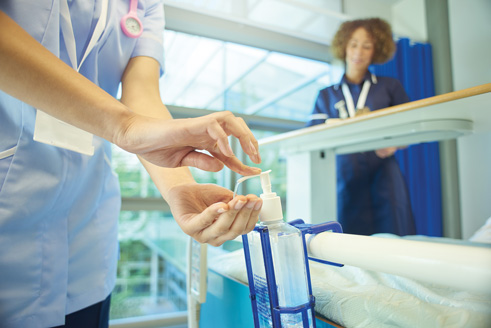
In an era defined by global health challenges, climate shocks and geopolitical instability, it is easy to overlook the everyday tools that silently keep society functioning and safe. Yet among these silent guardians, biocidal products stand out as one of the most essential, and often underappreciated, lines of defence against infectious threats.
Biocidal products—such as disinfectants, hand and surface sanitisers, and insecticides—are designed to control harmful organisms like bacteria, viruses and fungi. They are used in hospitals, homes, schools, public transport, and across key industries including food production and healthcare. Their role is simple yet fundamental: to prevent infections before they happen. Unlike pharmaceuticals, which treat diseases after they spread, biocides are a core part of prevention strategies, helping us to avoid the very outbreaks that strain health systems and economies.
Among these biocidal substances, ethanol has proven itself time and again as one of the most effective, accessible and versatile. And yet, its future use is now at a regulatory crossroads.
The COVID-19 wake-up call
Five years ago, the world needed alcohol more than ever. The rapid spread of COVID-19 thrust infection prevention into the global spotlight and ethanol was everywhere. From hand sanitising gels to surface sprays, ethanol-based products became the first line of defence in homes, hospitals, offices, supermarkets and public spaces. Its effectiveness against a wide range of pathogens, including the SARS-CoV-2 virus, made it a critical tool in reducing transmission.
The lesson was clear: effective hygiene saves lives, and ethanol makes it possible.
But as memories of the pandemic begin to fade, it is essential not to forget that ethanol had —and continues to have—in maintaining hygiene, safety and public health resilience.
Ethanol is a trusted ally
Ethanol is a versatile and essential ingredient and plays a pivotal role in many other industries that are part of our everyday lives including the detergents industry, particularly for its disinfecting properties. Its effectiveness and broad-spectrum capabilities make it indispensable in combatting a wide range of organisms, including bacteria and non-enveloped viruses like polio.
During the pandemic, it became the most widely used active ingredient in disinfectants due to its efficacy and availability.
Its success is not accidental. Ethanol is:
- Fast-acting, killing a broad range of microbes within seconds.
- Widely available as it is primarily derived from renewable sources and is fully biodegradable
- Safe as it leaves no residue on surfaces, evaporates quickly.
- Versatile, acting as a solvent, preservative and carrier in many formulations.
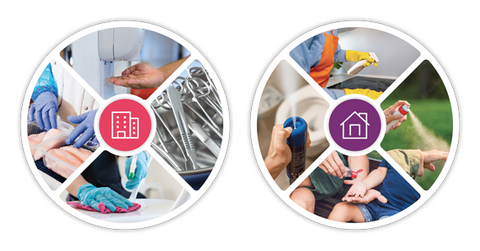
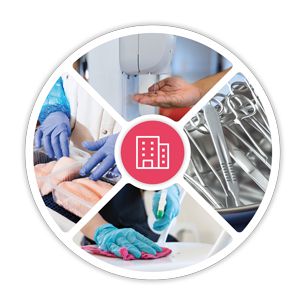
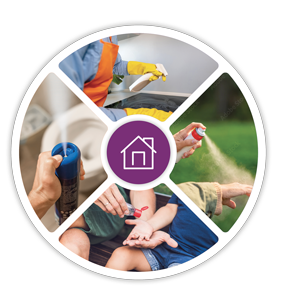
Ethanol is a key ingredient in hand disinfectants, surface disinfectants, cleaning products and insect repellents
Endorsed by the World Health Organization
The World Health Organization (WHO) has long promoted ethanol-based products, particularly ethanol-based hand sanitisers, as the gold standard for hand hygiene in healthcare settings (1). During the COVID-19 crisis, WHO launched the Safe Hands Challenge, a global campaign encouraging frequent use of alcohol-based sanitisers to combat the virus (2).
In resource-limited settings especially, ethanol-based hand rubs proved to be a cost-effective, scalable solution—demonstrating that sometimes, the simplest tools are the most powerful.
Broader role beyond the Covid pandemic
The importance of ethanol in hygiene and safety did not begin with the COVID-19 pandemic—nor will it end there. For years, ethanol has played a vital role across a wide spectrum of sectors, quietly supporting public health through its disinfecting and preservative properties. In hospitals, it is used to sanitise skin before injections or surgeries, clean medical instruments and prepare sterile surfaces in operating rooms. In the food industry, ethanol contributes to microbiological safety during food processing and packaging, helping to prevent contamination and ensure consumer protection.
Its role extends to laboratories and research settings, where it is used routinely to maintain sterile conditions and clean equipment. In hospitality, public transport and other high-traffic environments, ethanol-based products are key to reducing microbial transmission on shared surfaces and in enclosed spaces. Even in everyday consumer goods—from air fresheners to personal care items—ethanol serves as a solvent, carrier and preservative, enhancing the performance and stability of countless formulations.
Regulatory uncertainty: the risk of reclassification
Despite its safe and effective use, ethanol is currently facing regulatory uncertainty in the European Union. Ethanol is currently under assessment under the Biocidal Products Regulation (BPR), and there is growing concern that ethanol could be reclassified as toxic to reproduction and carcinogenic, a move that would significantly limit its use in biocidal products – it would in fact lead to a de facto ban for the general public.
Reclassifying ethanol would have massive consequences for European industry and society, without bringing any benefit to human health or the environment. Even with derogations, the availability of ethanol would be severely restricted due to local regulations. Authorities would face numerous unintended consequences, including changes in infection patterns and higher costs.
But the implications wouldn’t stop there. Because ethanol is also widely used in non-biocidal products – such as cosmetics, air fresheners or medical products – this reclassification could create ripple effects across multiple sectors.
This de facto ban is not a regulatory debate. It is a public health issue with real-world and far-reaching consequences.
Restricting or removing ethanol from these varied applications would undermine routine hygiene practices and disrupt critical supply chains and product formulations. The effects would extend beyond public health, with potential impacts on economic efficiency, product availability, consumer safety throughout Europe and the EU’s capacity for deal with another healthcare crisis.
We must not forget the hard-learnt lessons
In the early months of 2020, Europe—and the world—experienced a dramatic shift. Empty store shelves, rationed disinfectants and overstretched hospitals became everyday realities. And in the middle of this crisis, ethanol quietly did its job, protecting people where vaccines and medicines had not yet arrived.
Today, we face a choice: to act on the lessons learnt, or to allow our collective memory to fade. We must remember that pandemic preparedness starts with prevention, and prevention starts with hygiene.
Ethanol is not a luxury. It is a vital public health tool. Its availability must be protected. Its use must be safeguarded. And its regulation must be grounded in proportionality, practicality and scientific evidence.
How can society continue to prevent the spread of infection without ethanol? Find out in 60 seconds
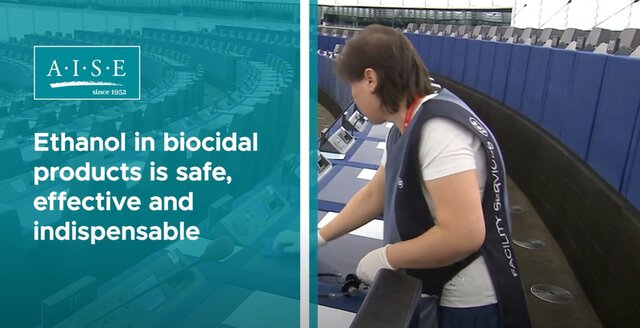
Come and talk to A.I.S.E. at SEPAWA Booth A104.


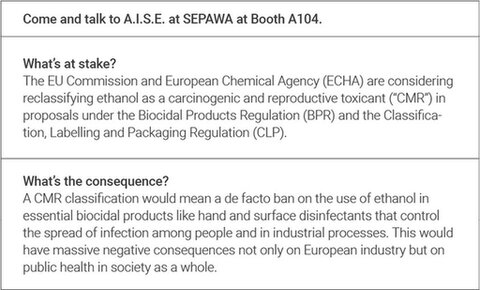
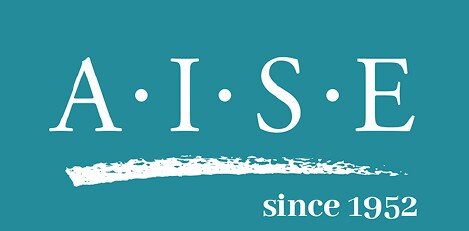
About A.I.S.E.
A.I.S.E. represents the detergents & maintenance products industry in Europe. Based in Brussels, A.I.S.E. has been the voice of the industry to EU regulators since 1952. Membership consists of 20 corporate members, 30 national associations across Europe and 19 value chain partners. Through this extensive network, A.I.S.E. represents over 900 companies supplying household and professional cleaning products and services across Europe.
A.I.S.E. is committed to promoting sustainable practices and innovation and collaborates closely with the European institutions, industry stakeholders and the public to enhance the sector’s environmental protection, consumer safety, and regulatory compliance efforts.
Read more about how ethanol keeps us safe on www.aise.eu/ethanol
Studies of major depressive disorder have been correlated with reduced Lactobacillus and Bifidobacteria and symptom severity has been correlated to changes in Firmicutes, Actinobacteria, and Bacteriodes. Gut microbiota that contain more butyrate producers have been correlated with improved quality of life (1).
A study in healthy women providing probiotic yogurt for four weeks showed an improvement in emotional responses as measured by brain scans (2). A subsequent study by Mohammadi et al. (3) investigated the impacts of probiotic yogurt and probiotic capsules over 6 weeks and found a significant improvement in depression-anxiety-stress scores in subjects taking the specific strains of probiotics contained in the yogurt or capsules. Other studies with probiotics have indicated improvements in depression scores, anxiety, postpartum depression and mood rating in an elderly population (4-7).
Other studies have indicated a benefit of probiotic supplementation in alleviating symptoms of stress. In particular, researchers have looked at stress in students as they prepared for exams, while also evaluating other health indicators such as flu and cold symptoms (1). In healthy people, there is an indication that probiotic supplementation may help to maintain memory function under conditions of acute stress.
References and notes
- WHO Guidelines on Hand Hygiene in Health Care: First Global Patient Safety Challenge Clean Care Is Safer Care. World Health Organization; 2009.
- https://www.who.int/campaigns/connecting-the-world-to-combat-coronavirus/safehands-challenge/handwashing-challenge
What’s at stake?
The EU Commission and European Chemical Agency (ECHA) are considering reclassifying ethanol as a carcinogenic and reproductive toxicant (“CMR”) in proposals under the Biocidal Products Regulation (BPR) and the Classification, Labelling and Packaging Regulation (CLP).
What’s the consequence?
A CMR classification would mean a de facto ban on the use of ethanol in essential biocidal products like hand and surface disinfectants that control the spread of infection among people and in industrial processes. This would have massive negative consequences not only on European industry but on public health in society as a whole.

